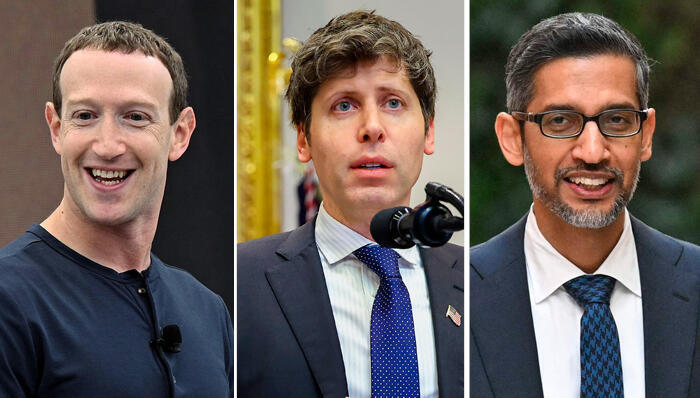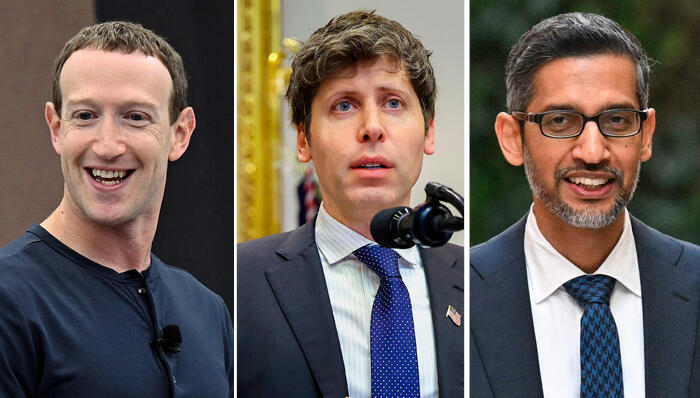
AI giants reverse course, push Trump to roll back regulations
Just a year after calling for regulation, AI companies now want unrestricted access to data and fewer government controls.
In May 2023, executives from the world’s leading artificial intelligence (AI) companies—including OpenAI, Google’s DeepMind, and Anthropic—made an unusual request to U.S. lawmakers: to regulate their industry. “Mitigating the risk of extinction by AI should be a top global priority,” they warned. Testifying before Congress that month, OpenAI founder and CEO Sam Altman stated, “I think if this technology goes wrong, it can go quite wrong. And we want to be vocal about that. We want to work with the government to prevent that from happening.”
But much has changed since then. A new administration has taken office, and with it, the AI giants have shifted their stance. Now, according to a report by The New York Times, these companies are lobbying to reduce oversight and restrictions. In recent weeks, Google, OpenAI, Meta, and others have urged the administration to block state-level AI regulations, support legislation allowing them to use copyrighted content in AI training, and grant them access to federal data to develop their models.
1 View gallery


Mark Zuckerberg, Sam Altman, Sundar Pichai
(Photos: Josh Edelson/ AFP Schwartz/Sipa/Bloomberg AP Photo/Markus Schreiber)
During Joe Biden's presidency, his administration worked with AI companies to establish regulations, leading to agreements on external algorithm reviews, AI-generated content labeling, and risk management transparency. In October 2023, Biden signed an executive order aimed at protecting citizens' privacy and rights, requiring federal agencies to ensure AI systems do not harm the public.
That approach was quickly overturned when Donald Trump returned to the White House. Within his first week in office, he signed an executive order repealing Biden’s AI policies and instead prioritized “removing barriers to American leadership in artificial intelligence.” The order also directed the development of policies to accelerate AI growth within 180 days.
For AI companies, which had been courting Trump since his election victory in November, this was a clear signal to shift their approach. Since the order was issued, they have submitted numerous petitions to shape the new AI policy. OpenAI, for instance, filed a 15-page document urging the federal government to prevent states from imposing AI regulations. The company also referenced China’s DeepSeek, which trained an advanced AI model using far less computing power than U.S. firms, arguing that American companies need unrestricted access to federal data to remain competitive. “If China's developers have unfettered access to data and American companies are left without fair use access, the race for AI is effectively over,” OpenAI claimed.
Google, Meta, and OpenAI are also pushing for the government to back their position that using copyrighted works—such as books, films, and artwork—to train AI models constitutes fair use. All three companies are facing lawsuits from copyright holders, and federal support could significantly influence court rulings. Meta, for example, is asking the White House to issue an executive order clarifying that training AI on publicly available data is legal.
Venture capital firm Andreessen Horowitz, whose founders Marc Andreessen and Ben Horowitz publicly endorsed Trump in July 2024, has been among the most vocal opponents of AI regulation. The firm argues that existing consumer protection and civil rights laws are sufficient.
The reasons behind the AI industry’s shift are complex. While companies are eager to align with the Trump administration to secure policy advantages, their motivation goes beyond politics. The drive for profit and market dominance is a key factor, but so is a growing sense of urgency.
Under Biden’s regulatory framework, U.S. companies believed they had a secure lead in AI, thanks to massive investments, cutting-edge models, and restrictions on exporting AI chips to China. Competing required vast resources and access to significant computing power. However, as foreign companies innovate with fewer regulations and more efficient computing methods, the U.S. tech giants now see cautious oversight as a liability.
The AI industry’s concerns about the risks of artificial intelligence may be genuine, but as their recent lobbying efforts show, their top priority remains maintaining market dominance. And with Trump—who has shown little interest in AI safety but is deeply invested in American supremacy—they have an ally in the White House ready to clear their path.














